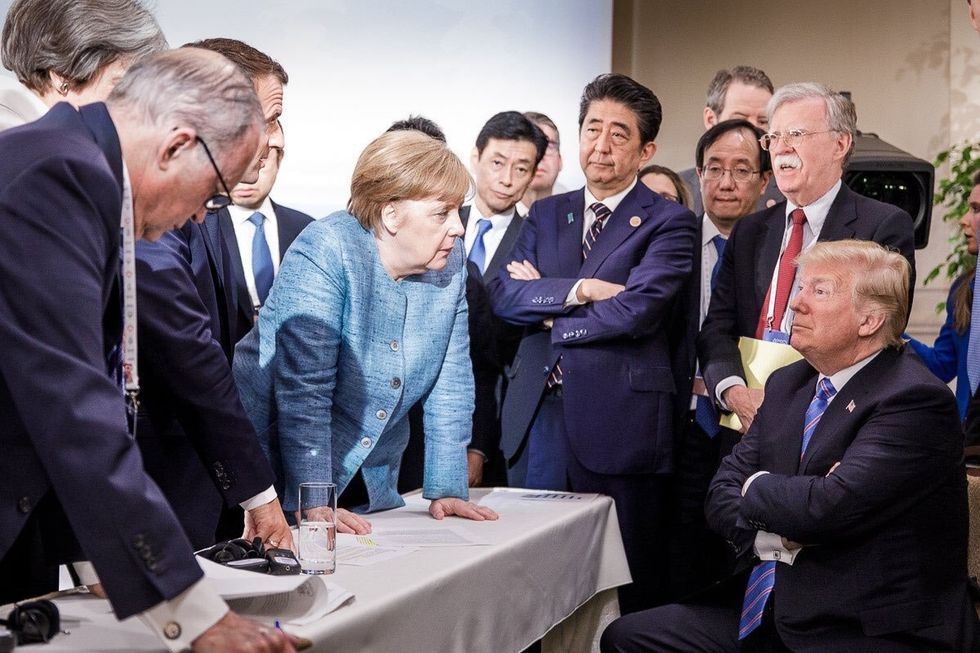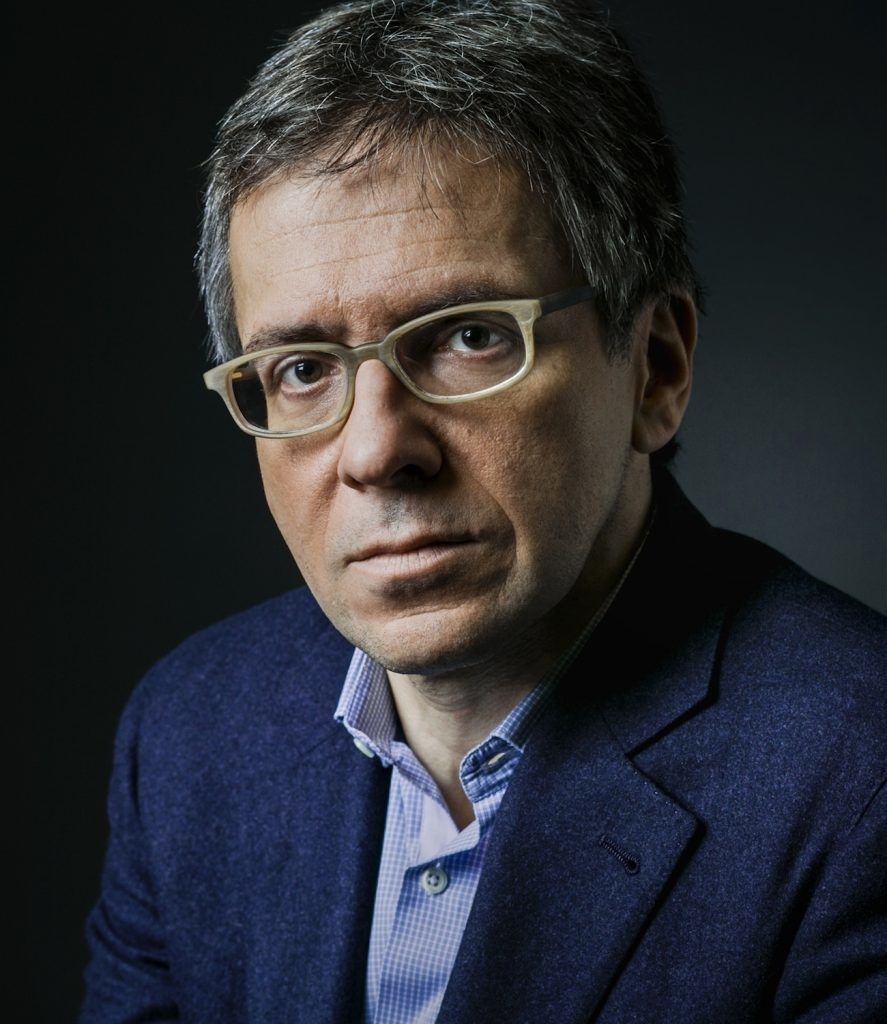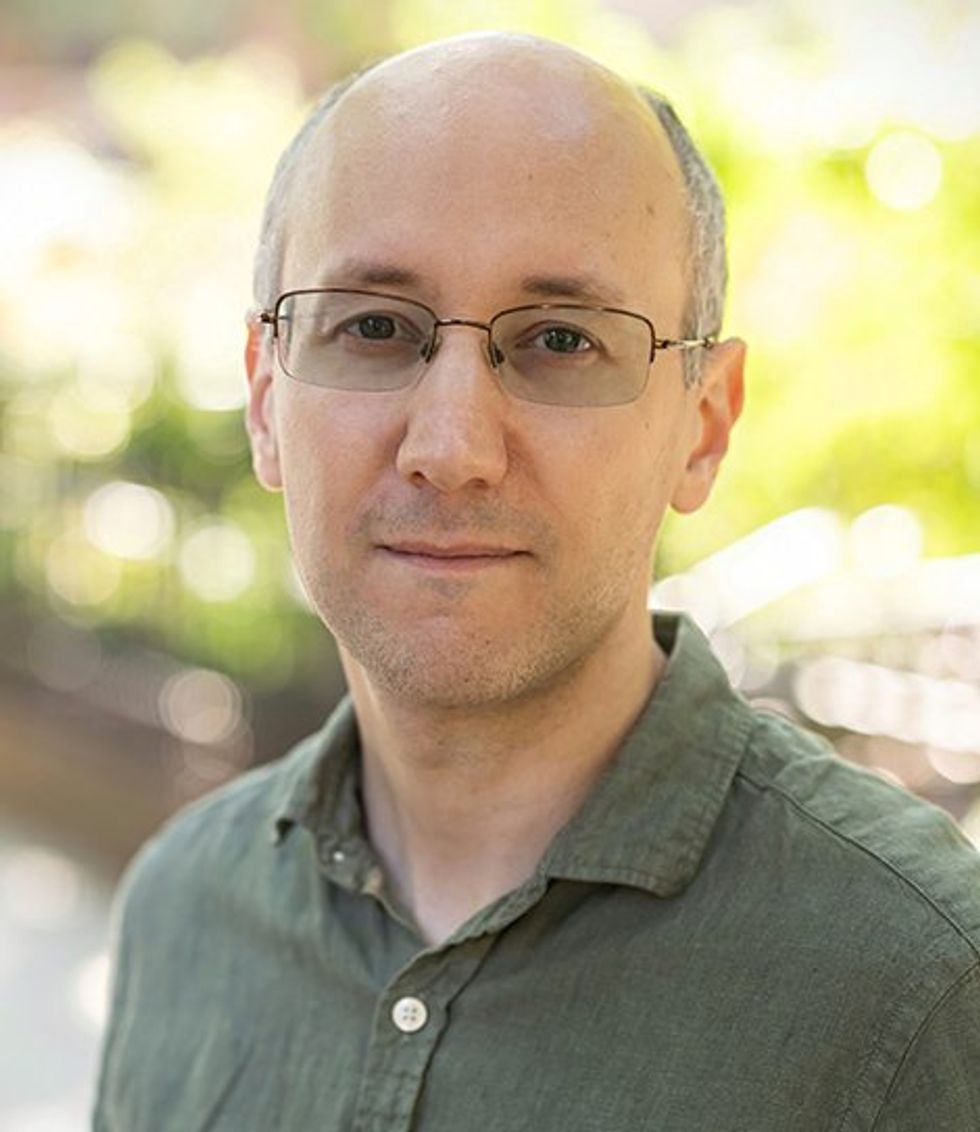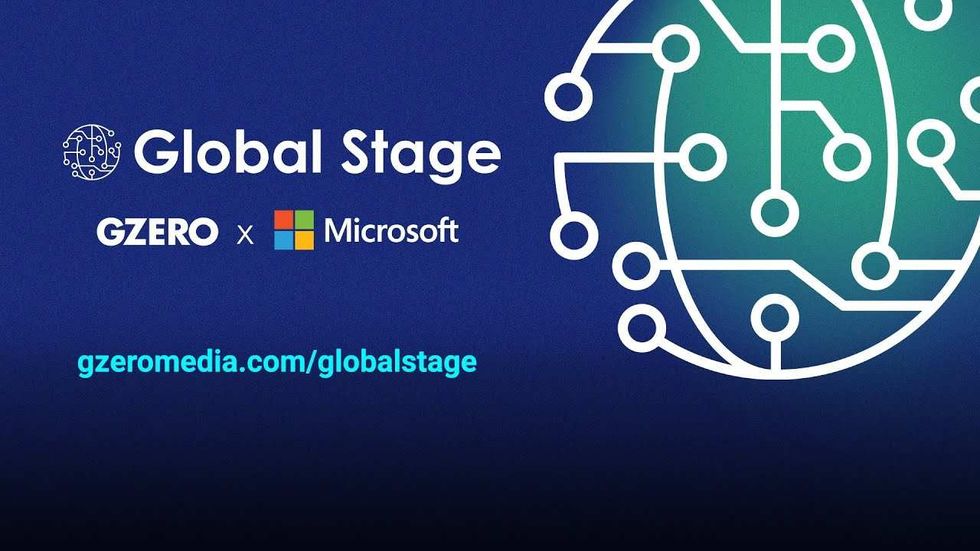Analysis
Iran conflict spirals, with no end in sight
Supreme Leader Ali Khamenei is dead, the conflict is spreading, and US President Donald Trump still isn’t clear on who he wants to run Iran.
Supreme Leader Ali Khamenei is dead, the conflict is spreading, and US President Donald Trump still isn’t clear on who he wants to run Iran.
With US forces building up in the Middle East, Trump is betting military pressure will force Iran to bend. Will this turn into a full-scale conflict?
The US and Israel have launched a series of strikes against Iran at a moment when the Islamic Regime is at its weakest. Ian Bremmer spoke with Iran expert Karim Sadjadpour in Munich earlier this month to understand the choices the regime and population are facing.
Listen: Ian Bremmer sits down with Karim Sadjadpour of the Carnegie Endowment for Peace to examine Iran’s precarious position on the global stage and the forces shaping the country. At the heart of the discussion is the regime’s internal fragility. Sadjadpour explains that many inside Iran, including elements of the Revolutionary Guards, are “waiting for Ayatollah Khamenei to die.”
The conversation also explores Iran’s isolation in the international arena. While 90% of its oil goes to China at deep discounts, Sadjadpour points out that Chinese and Russian interests in Iran diverge sharply. Despite the pressures at home and abroad, Sadjadpour argues that many ordinary Iranians recognize that reconciliation with the United States is essential if the country is ever to realize its enormous potential.
Subscribe to the GZERO World Podcast on Apple Podcasts, Spotify, Stitcher, or your preferred podcast platform, to receive new episodes as soon as they're published
As expected, the Supreme Court struck down the bulk of Donald Trump's sweeping “Liberation Day” tariffs as illegal … and almost nothing changed.
In a 30-minute call on Thursday, President Donald Trump reportedly told Ukrainian President Volodymyr Zelensky he wants to end the war with Russia as soon as possible — aiming for a deal by summer, but ideally within weeks.
Are we still talking. #PUPPETREGIME
An imminent US airstrike on iran is not only possible, it's probable.
Small business hiring surged 7% above the 2024 average in December, led by a surprise rally in retail. But with uncertainty still historically high and mounting concerns over tariffs, can this momentum survive 2026? Explore the data behind the resilience of the US small business sector.
Get the latest economic insights from Bank of America Institute.
Think you know what's going on around the world? Here's your chance to prove it.
President Trump spoke for 108 minutes during his State of the Union address, making it the longest speech for a president before Congress. Who held the record before?
Take the quiz to see if you guessed correctly!
GZERO Media is a company dedicated to providing the public with intelligent and engaging coverage of global affairs. It was created in 2017 as a subsidiary of Eurasia Group, the world's leading political risk analysis firm.
Interest in global affairs is soaring these days, and yet traditional sources of insight are either too politicized, too polarizing, or too boring.
We believe there's a better way to help people understand the forces that are reshaping their world. By delivering deep insight with a light touch. By taking a global view. By pushing beyond predictable opinions and formats to inform, engage, challenge, and entertain.
Our approach is at once journalistic, analytical, and creative. We not only explain the most important stories in the world today — we tease out the critical connections between them, so you can be smart about what comes next.
Whether you get the daily dish on global affairs from our GZERO Daily newsletter, see global leaders in a different light on GZERO World with Ian Bremmer, or get your fix of laughter and outrage from our political satire show PUPPET REGIME, we hope that you come away with a broader and deeper understanding of the world.
For decades, a small number of leading countries regularly came together – in formats like the Group of Seven (G7) or the wider Group of 20 (G20) – to seek collective solutions to the world's most pressing challenges. What's more, the United States used its power, for better or worse, as a kind of "G1" to underwrite global norms of global commerce, finance, and security.
Today, that order is slipping away. No single power or group of powers is willing or able to set a global agenda. It's a world of many pretenders, but no leaders. Welcome to the GZERO.

President Donald Trump seated surrounded by foreign leaders including Germany's Angela Merkel, Japan's Shinzo Abe and France's Emmanuel Macron
Getty Images

Ian Bremmer is President and Founder of GZERO Media. He hosts the weekly digital and broadcast show, GZERO World with Ian Bremmer, where he explains the key global stories of the moment, sits down for an in-depth conversation with the newsmakers and thought leaders shaping our world, and takes your questions.
Ian is also the President and Founder of GZERO Media's parent company, Eurasia Group, the leading global political risk research and consulting firm. Ian is a New York Times bestselling author of eleven books including "Us vs Them: The Failure of Globalism," "Every Nation for Itself: Winners and Losers in a G-Zero World," "The End of the Free Market: Who Wins the War Between States and Corporations?" and "Superpower: Three Choices for America's Role in the World." His latest book, "The Power of Crisis," draws lessons from global challenges of the past 100 years—including the pandemic—to show how we can respond to three great crises unfolding over the next decade.
Ian earned a master's degree and a doctorate in political science from Stanford University, where he went on to become the youngest-ever national fellow at the Hoover Institution. Although he might not admit it, Ian's secretly jealous of his puppet's interviews with the world's most powerful leaders.
Justin Kosslyn is Interim Publisher at GZERO Media and a Special Advisor at Eurasia Group. Previously, he was the Director of Product Management for Google's News Ecosystem, overseeing products such as Google Trends, Search Console, Reader Revenue Manager, Site Kit, Pinpoint, and R&D efforts in Generative AI.
Before that, Justin was Head of Digital Products at TED, the organization behind TED Talks. He also spent a decade at Google Jigsaw, where he led teams developing software tools to enhance digital and information security. His work included managing Google's warnings for government-backed cyberattack targets and developing ClaimReview, a fact-checking tool now widely used across major tech platforms.
Justin graduated from Yale University with a BS in Computer Science. He lives in New York with his wife and two children.


From Davos and the Munich Security Forum to the UN General Assembly, our livestream discussions convene heads of state, business leaders, technology experts from around the world for critical debate about the geopolitical and technology trends shaping our world.
In a new Global Stage livestream from the 2026 Munich Security Conference, New York Times White House and national security correspondent David Sanger moderates a conversation with Ian Bremmer (President & Founder, Eurasia Group and GZERO Media), Brad Smith (Vice Chair & President, Microsoft), Benedetta Berti (Secretary General, NATO Parliamentary Assembly), and Wolfgang Dierker (Global Head of Government Affairs, SAP) on how technology and defense are colliding in real time.
Keep up with what’s going on around the world - and why it matters.